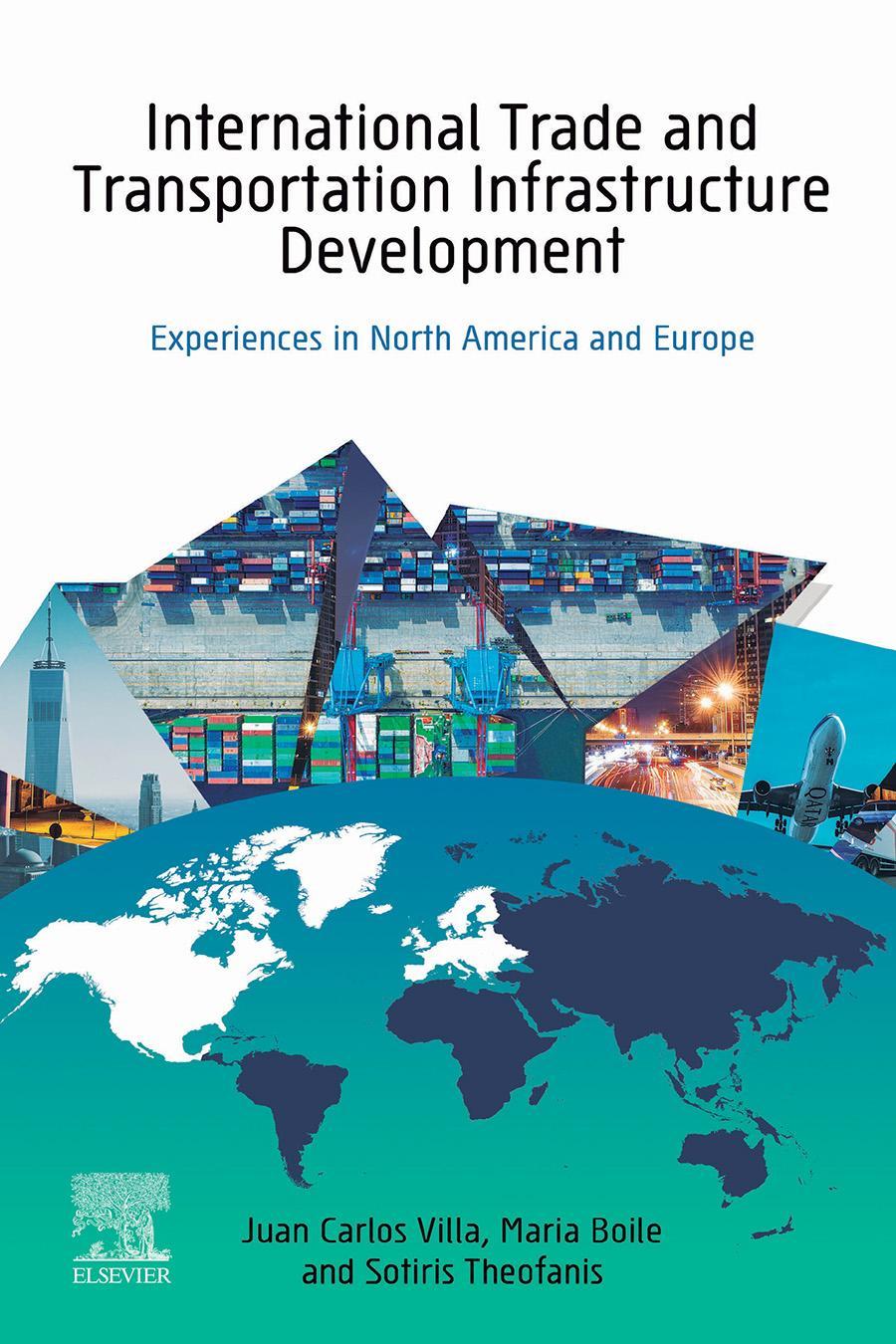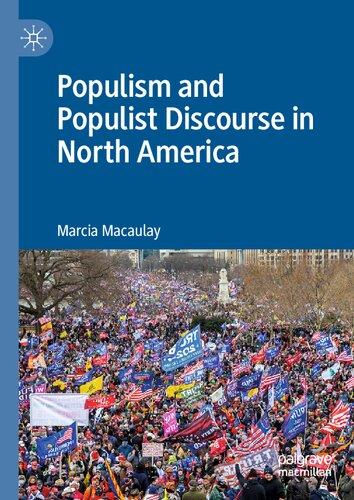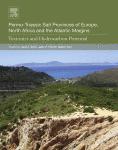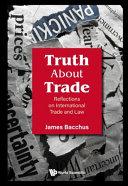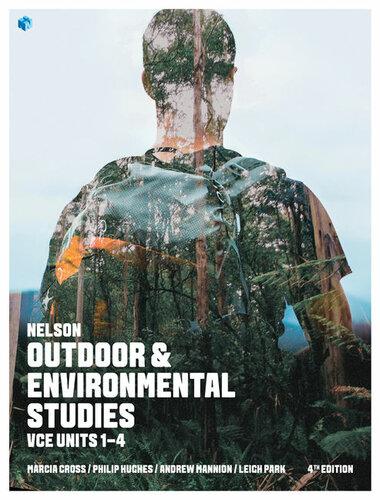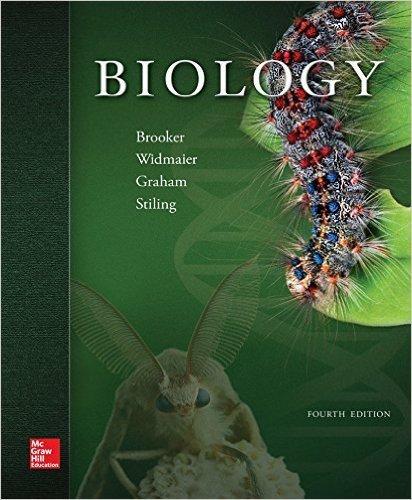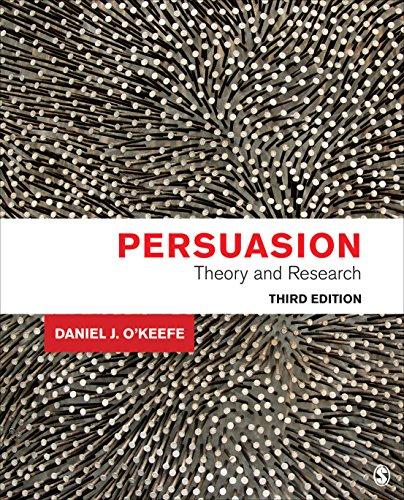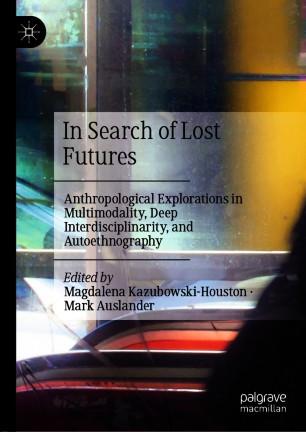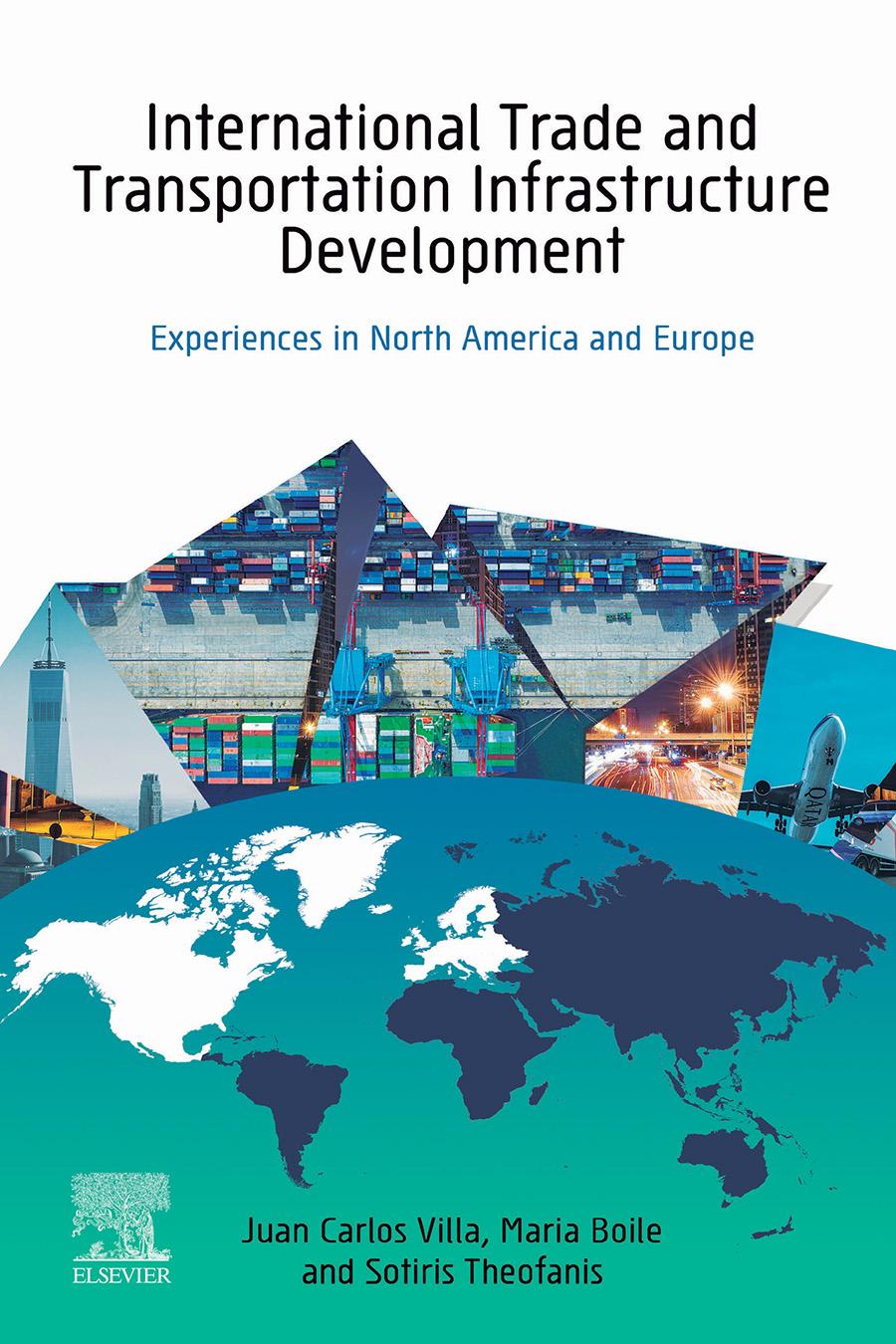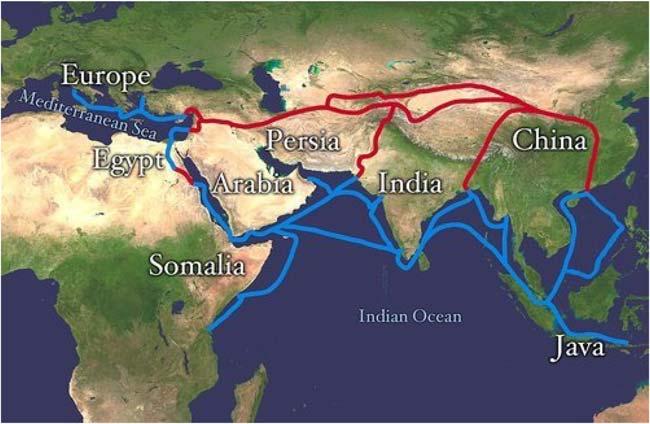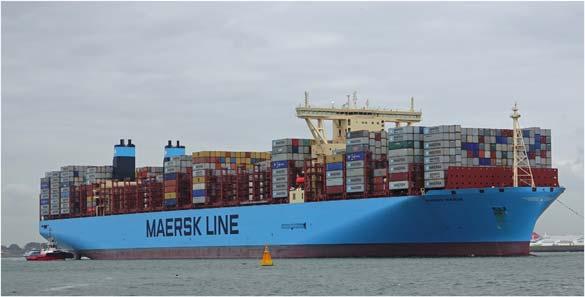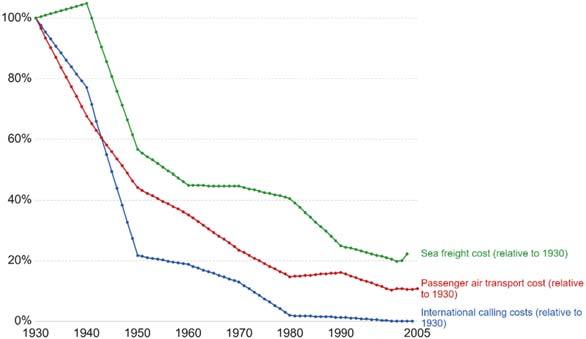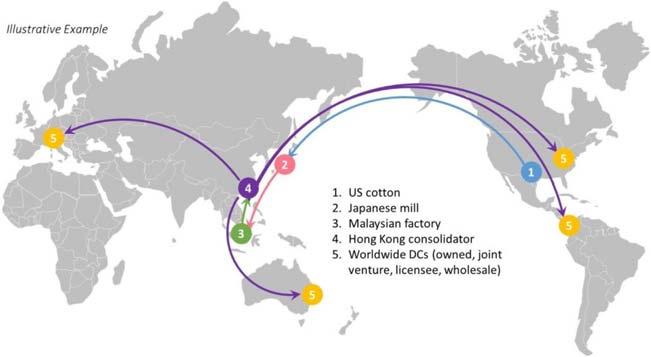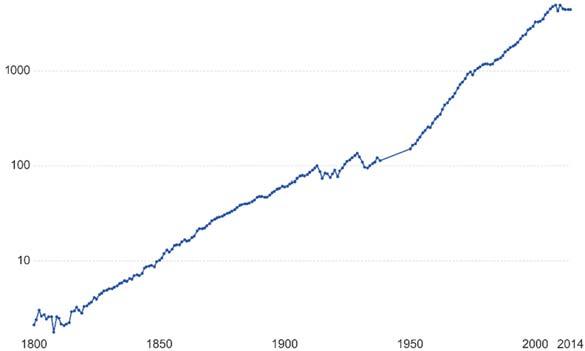InternationalTradeandTransportation InfrastructureDevelopment:ExperiencesinNorth AmericaandEuropeJuanCarlosVilla
https://ebookmass.com/product/international-trade-andtransportation-infrastructure-development-experiences-innorth-america-and-europe-juan-carlos-villa/
Instant digital products (PDF, ePub, MOBI) ready for you
Download now and discover formats that fit your needs...
Populism and Populist Discourse in North America Marcia Macaulay
https://ebookmass.com/product/populism-and-populist-discourse-innorth-america-marcia-macaulay/
ebookmass.com
Permo-Triassic Salt Provinces of Europe, North Africa and the Atlantic Margins. Tectonics and Hydrocarbon Potential 1st Edition Edition Juan I. Soto
https://ebookmass.com/product/permo-triassic-salt-provinces-of-europenorth-africa-and-the-atlantic-margins-tectonics-and-hydrocarbonpotential-1st-edition-edition-juan-i-soto/
ebookmass.com
Truth About Trade: Reflections on International Trade and Law James Bacchus
https://ebookmass.com/product/truth-about-trade-reflections-oninternational-trade-and-law-james-bacchus/
ebookmass.com
Nelson Outdoor and Environmental Studies 4 th Edition Marcia Cross
https://ebookmass.com/product/nelson-outdoor-and-environmentalstudies-4-th-edition-marcia-cross/
ebookmass.com
An Unexpected Earl Anna Harrington
https://ebookmass.com/product/an-unexpected-earl-anna-harrington-4/
ebookmass.com
Collide: A Brother's Best Friend Romance (Sierra Cove Book 2) Lyssa Cole
https://ebookmass.com/product/collide-a-brothers-best-friend-romancesierra-cove-book-2-lyssa-cole/ ebookmass.com
eTextbook 978-1259188121 Biology 4th Edition
https://ebookmass.com/product/etextbook-978-1259188121-biology-4thedition/
ebookmass.com
(eTextbook PDF) for Biology Now with Physiology (Second Edition)
https://ebookmass.com/product/etextbook-pdf-for-biology-now-withphysiology-second-edition/
ebookmass.com
Persuasion: Theory and Research Third Edition – Ebook PDF Version
https://ebookmass.com/product/persuasion-theory-and-research-thirdedition-ebook-pdf-version/
ebookmass.com
In Search of Lost Futures 1st Edition Magdalena Kazubowski-Houston
https://ebookmass.com/product/in-search-of-lost-futures-1st-editionmagdalena-kazubowski-houston/
ebookmass.com
InternationalTradeandTransportation InfrastructureDevelopment: ExperiencesinNorthAmericaand
Europe
Thispageintentionallyleftblank
InternationalTrade andTransportation Infrastructure Development: Experiencesin NorthAmericaand Europe
JuanCarlosVilla
ResearchScientistandManagerLatinAmerica,TexasA&M TransportationInstitute(TTI),MexicoCity,Mexico
MariaBoile
Professor,DepartmentofMaritimeStudies,UniversityofPiraeus; DirectorofResearch,HellenicInstituteofTransport,Greece; SeniorResearchScientist,CAIT,RutgersUniversity,NJ,UnitedStates
SotirisTheofanis
ChairmanandManagingDirectorofThPASA,PortofThessaloniki, Greece;SeniorResearchScientist,CAIT,RutgersUniversity,NJ, UnitedStates
Elsevier
Radarweg29,POBox211,1000AEAmsterdam,Netherlands
TheBoulevard,LangfordLane,Kidlington,OxfordOX51GB,UnitedKingdom 50HampshireStreet,5thFloor,Cambridge,MA02139,UnitedStates
Copyright©2020ElsevierInc.Allrightsreserved.
Nopartofthispublicationmaybereproducedortransmittedinanyformorbyanymeans,electronic ormechanical,includingphotocopying,recording,oranyinformationstorageandretrievalsystem, withoutpermissioninwritingfromthepublisher.Detailsonhowtoseekpermission,further informationaboutthePublisher’spermissionspoliciesandourarrangementswithorganizationssuch astheCopyrightClearanceCenterandtheCopyrightLicensingAgency,canbefoundatourwebsite: www.elsevier.com/permissions.
Thisbookandtheindividualcontributionscontainedinitareprotectedundercopyrightbythe Publisher(otherthanasmaybenotedherein).
Notices
Knowledgeandbestpracticeinthisfieldareconstantlychanging.Asnewresearchandexperience broadenourunderstanding,changesinresearchmethods,professionalpractices,ormedical treatmentmaybecomenecessary.
Practitionersandresearchersmustalwaysrelyontheirownexperienceandknowledgeinevaluating andusinganyinformation,methods,compounds,orexperimentsdescribedherein.Inusingsuch informationormethodstheyshouldbemindfuloftheirownsafetyandthesafetyofothers,including partiesforwhomtheyhaveaprofessionalresponsibility.
Tothefullestextentofthelaw,neitherthePublishernortheauthors,contributors,oreditors,assume anyliabilityforanyinjuryand/ordamagetopersonsorpropertyasamatterofproductsliability, negligenceorotherwise,orfromanyuseoroperationofanymethods,products,instructions,orideas containedinthematerialherein.
BritishLibraryCataloguing-in-PublicationData
AcataloguerecordforthisbookisavailablefromtheBritishLibrary LibraryofCongressCataloging-in-PublicationData
AcatalogrecordforthisbookisavailablefromtheLibraryofCongress
ISBN:978-0-12-815741-1
ForInformationonallElsevierpublications visitourwebsiteat https://www.elsevier.com/books-and-journals
Publisher:JoeHayton
AcquisitionsEditor:BrianRomer
EditorialProjectManager:MichelleFisher
ProductionProjectManager:SujathaThirugnana Sambandam
CoverDesigner:GregHarris
TypesetbyMPSLimited,Chennai,India
2.5GlobalandNorthAmericaFreeTradeAgreementtrade
2.7ImpactsofoffshoringandnearshoringinNorthAmericanFree
3.3.2US Mexicotradebyrail77
3.3.3US Mexicotradebyvessel80
3.3.4USimportsbytruckandrail81
3.4KeyNorthAmericanFreeTradeAgreementsupplychains
4.Cross-bordertransportationinfrastructureinNorth America(transportationsupply)
4.2.1CanadianAsia Pacificgatewayandcorridorstrategy98
4.2.2CanadianOntario QuebecContinentalGateway strategy100
4.2.3Canada’sAtlanticgatewayandtradecorridorstrategy101 4.2.4Canada’shighwayfunding101
4.3RoadwaysystemintheUnitedStates 104
4.3.1NationalHighwaySystemintheUnitedStates104
4.3.2TheUnitedStatesNationalHighwayFreightNetwork104
4.3.3HighwayfundingintheUnitedStates107
4.4RoadwaysysteminMexico 109
4.4.1HighwayclassificationinMexicoforfreightmovement109
4.4.2HighwaycorridorsinMexico111
4.4.3HighwayfundinginMexico112
4.5Summary:NorthAmericanhighwaysystems 113
4.6RailroadsinNorthAmerica 114
4.6.1Railroadclassification114
4.7Landbordercrossings 117
4.7.1US Canadabordercrossingsinfrastructure117
4.7.2US Canadarailcrossings121
4.7.3US Mexicobordercrossingsinfrastructure123
4.7.4US Mexicorailbordercrossings128
4.8StakeholdersintheNorthAmericanbordercrossing environment 130
4.8.1Federalcustomsagencies130
4.8.2Federalandlocaltransportationagencies130
4.8.3Bordercrossingoperators131
4.8.4Privatesectorcarriers,customsbrokers,andlogistics operators131
4.8.5Otherorganizations132
4.9Bordercrossingprocesses 132
4.9.1MexicototheUScommercialvehiclecrossingprocess133
4.9.2UStoMexicocommercialvehiclecrossing135
4.9.3MexicotoUSprivatelyownedvehiclecrossingprocess135
4.9.4UStoMexicoprivatelyownedvehiclecrossingprocess135
4.9.5Canada USbordercrossingprocesses136
4.10Trustedtravelerandtradeprograms 136
4.10.1FASTprogram136
4.10.2Passengervehiclebordercrossingsecurityprograms136
4.10.3Unifiedcargoprocessing137
4.11Bordercrossinginfrastructuredevelopmentprocess 140
4.11.1USpresidentialpermit140
4.11.2Step1:Projectcategorization141
4.11.3Step2:Applicationrequirements141
4.11.4Step3:Environmentalreview142
4.11.5Step4:Agencyreviewandpubliccomment142
4.11.6Step5:Nationalinterestdeterminationandpermit issuance142
4.12Bordercrossinginfrastructurefundingmechanisms 142 References 144
5.TradeandtransportationevolutionintheEuropean Union 149
5.1DescriptionofhowtheEuropeanUnionevolvedfromthe originalfoundingmemberstocurrentstatus 149
5.1.1AbriefhistoryoftheEuropeanUnion149
5.1.2Decision-makingatEuropeanUnionlevelandthe Europeaninstitutionsinvolved151
5.1.3TypesoflegalactsproposedbytheEuropean Commission154
5.1.4TypesofpowersgrantedtotheEuropeanUnionon policy-makingdecisions154
5.1.5FinancialsupporttoEuropeanUnionpolicy implementation:themultiannualfinancialframework155
5.2Internalandexternaltradepolicydevelopmentsandimpacts onthetransportationsystem 157
5.2.1EvolutionoftheEuropeanUniontradepolicy157
5.2.2TypesofEuropeanUniontradeagreements158
5.2.3EuropeanUniontradeagreementnegotiationprocess159
5.2.4Transportpolicyandtrade160
5.2.5Today’scontext161
5.3EuropeanUniontradeagreements,shapingtraderelations withnon-EuropeanUnioncountries 162
5.3.1Customsunion,theinternalmarketandfreetrade areasinEurope163
5.3.2MultilateralfreetradeareasinEurope164
5.3.3Bi-lateralEuropeanUnionfreetradeagreements165
5.3.4Unilateraltradeagreements169 References 178
6.TradedemandintheEuropeanUnion
6.1Introduction
6.2InternalandexternalEuropeanUniontrade
6.3Intra-EuropeanUniontrade
6.3.1Intra-EuropeanUniontradebyMemberState186
6.3.2Intra-EuropeanUniontradebyproducttype187
6.4Extra-EuropeanUniontrade 195
6.4.1Extra-EuropeanUniontradebyMemberState199
6.4.2Extra-EuropeanUniontradebyproducttype202
6.5EuropeanUniontradebymodeoftransport 205
6.5.1Extra-EuropeanUniontradebymode205
6.5.2InlandEuropeanUnionfreighttransport208
6.6MajorEuropeansupplychains 210 Datasources 213 References 213
7.Transportationcorridorinfrastructureplanningand fundingintheEuropeanUnion 215
7.1TransportnetworkdevelopmentinEurope 215
7.2TheTrans-EuropeanTransportNetworks 217
7.3Corenetworkcorridors 220
7.3.1Atlanticcorridor221
7.3.2Baltic Adriaticcorridor223
7.3.3Mediterraneancorridor225
7.3.4NorthSea Balticcorridor227
7.3.5NorthSea Mediterraneancorridor229
7.3.6Orient EastMedcorridor231
7.3.7Rhine Alpinecorridor233
7.3.8Rhine Danubecorridor235
7.3.9Scandinavian Mediterraneancorridor237
7.4Europeantransportationinfrastructurefundingmechanisms 239
7.4.1ConnectingEuropefacility240
7.4.2Europeanfundforstrategicinvestment241
7.4.3Europeanstructuralandinvestmentfunds242
7.4.4Horizon2020243
7.5Infrastructureconnectivitywithneighboringcountriesand keytradepartners 243
7.5.1Europeanneighborhoodpolicy243
7.5.2TheEU Chinaconnectivityplatform245
TradeandTransportationFutureTrends
8.2.1Blockchain252
8.2.2InternetofThings252
8.2.3Additivemanufacturing(three-dimensionalprinting)253
8.2.4Automatedvehicles/connectedvehicles254
8.2.5Ecommerce254
8.3Impactsofdisruptivetechnologiestotradeand transportationinfrastructuredevelopment
8.4Geopoliticaldevelopments
Thispageintentionallyleftblank
Preface
Internationaltradetripledinthetwodecadesbetween1990and2010.This expansionistheresultofsustainedeconomicgrowth,aswellasastrong increaseineconomicinterdependenceamongcountries,particularlyintwo tradingblocs:NorthAmericaandtheEuropeanUnion.Consequentially, worldtradeincreasedmuchfasterthanthetransportationinfrastructuresthat handlemerchandisetrade.AnalyzinginternationaltradeflowsinNorth AmericaandtheEuropeanUnion,andtherelateddevelopmentoftransportationinfrastructure,Irealizedthattherewasnosinglesourceofinformation thathasdocumentedhowtransportationinfrastructureisplanned,funded, built,andmaintainedinthethreeNorthAmericancountries.Thisledmeto theideaofwritingthisbookwithmyexperienceinNorthAmericaandI invitedmycolleagues,MariaBoileandSotirisTheofanis,toenrichthecontentwithEuropeanexperience.Thisbookalsoanalyzeshowsupplychains havebeenevolvingtoservetradedemandandmakebetteruseofexisting transportationinfrastructureandinternationalregulations.
WhenIstartedwritingthisbook,Ithoughtitwouldbearelativelyeasy task,givenmymorethan35yearsofexperienceintheNorthAmerican transportationsector,havingworkedinvarioustransportationmodes:roadways,rail,maritime,andlandports,aswellasinvariousdisciplinesincludingplanning,projectdevelopment,technologyimplementation,infrastructure privatization,andtradeandeconomicanalyses.However,whenIstartedanalyzingthedetailsofeachtopicitwasoverwhelming.TheamountofinformationIprocessedandthepaceoftransformationtriggeredbyrecenttrade wars,naturaldisasters,andmajorinfrastructurechanges,suchastheexpansionofthePanamaCanal,becamealargertaskthananticipated.
Iwasabletoconcludethisworkbydefiningacut-offdatefordataanalysis.However,recenteventssuchasBrexit,thenewNAFTA,orUSMCA, andothereventsprovideamplematerialforacontinuation.Iwouldnothave beenabletoreachthispointwithoutthesupportofmyfamily,particularly mylovelywifeCarmen,whohasstoodbymenotonlythroughthis endeavor,butalsothroughoutourjourneytogether,movingfromcountryto countryandmultiplehomes.Thissupporthasallowedmetoparticipatein multipletransportationandtrade-relatedprojectsthathavecontributedtothis book.IwouldalsoliketothankallmyfriendsandcolleaguesattheTexas A&MTransportationInstitutefortheirsupportandtheopportunitytoshare
greatworkexperiencesthathavehelpedindevelopingthisbook.Special thanksaregiventoJoseManuelAncona,whohadthepatiencetoworkwith megatheringandanalyzingdata,preparingchartsandgraphsforthisbook, andtoFernandaVillegasandGaryAmayo,whoalsohelpedinpreparing chartsandcheckingreferences.ThanksalsotoArturoBecerra,mywife’s colleague,whodevelopedthebookcover.
JuanCarlosVilla, January2020
Globaltradehasbeengrowingfastduringthelastseveraldecades,andit isexpectedtocontinuetogrow,despitetherecentslowdown.International andregionaladvanceslikethoserelatingtotheUnitedStatesandthe EuropeanUnionhavebeencoupledwithotherglobalandregionalinitiatives, includingtherecentlyemergingChineseBeltandRoadInitiative(BRI). Thesedevelopmentshaveshapedtheexistingtransportationinfrastructureand arecreatinganeedforfurthernetworkdevelopmentandnewtransportation servicesandoperations.
WewerepleasedtojoinourcolleagueJuanCarlosVillainwritingthis book,providingourperspectiveandcontributingtothistemptinginitiative. Weunderstandthisbookandourcontributiontobeanongoingandcontinuingeffortinlookingattheevolutionofglobaltradeandhowitinfluences thedevelopmentofglobaltransportationinfrastructure.
SpecialthanksgotoEleniVargianitiandAngelosAggelakakisforassistinguswiththedatagatheringandanalysis.
Wewouldliketodedicatethisbooktoourdaughters,Ioanna-Myrtoand Maro-Athina,thankingthemforbeingwhotheyare.
MariaBoileandSotirisTheofanis, January2020
PartI
TheLinkBetweenTrade andTransportation
Thispageintentionallyleftblank
Chapter1
Tradeandtransportation relationship
1.1Introduction
Internationaltrade istheexchangeofproductsandservicesbetweencountries.Inthisbook,wearereferringtothetradeofgoodsorcargo,whichare productsconveyedbysomesortoftransportationmode.Usually,transportationmodesforinternationaltradeincludewater,air,orland.Landtransport modesusedforinternationaltradeareroad(trucking)orrail.Usually,more thanonemodeoftransportisusedtoshipfreightfromthepointoforiginin onecountrytothedestinationinthereceivingcountry.Thedevelopmentof modalandintermodaltransportationinfrastructurethatincludesports,inland terminals,warehousingfacilities,andthelikeincreasesregionalaccessibility toglobalmarkets. Internationalmultimodaltransport isdefinedasthecarriageofgoodsbyatleasttwodifferentmodesoftransport,onthebasisofa multimodaltransportcontract,fromaplaceinonecountryatwhichthe goodsaretakeninchargebythemultimodaltransportoperatortoaplace designatedfordeliveryinadifferentcountry.Thisdefinitionisfromthe UnitedNationsConventiononInternationalMultimodalTransportofGoods (UnitedNations,1980).
Internationaltradehasevolvedthroughouthistory.Whenlocaleconomies grewtoapointthattheproductsorcommoditiesneededtosatisfydomestic needsinordertocontinueitsdevelopmentwerenotavailableintheregion, theystartedtradingforresourcesproducedoutsidetheircommunities.Many nationsflourishedduetotheirtradecapabilities,developingtransportation infrastructureandprocedurestomakethemovementofgoodsmore efficient.
A traderoute isalogisticalnetworkidentifiedasaseriesofpathways andstoppages(linksandnodesinanetwork)usedforthecommercialtransportofcargo,includingtradeoverbodiesofwater.Allowinggoodstoreach distantmarkets,asingletraderoutecontainslong-distancearteries,which mayfurtherbeconnectedtosmallernetworksofcommercialandnoncommercialtransportationroutes(Burns,2003).
4 PART|I TheLinkBetweenTradeandTransportation
Watermodeswerethefirstmeansoftransportinggoods,asroadwaysystemswerenotwelldeveloped.Mesopotamiahadfertilebasinsontheborders oftheTigrisandEuphratesRiversthatallowedthiscivilizationtoflourish anduseits“waterroadways”toimportandexportgoods.
ThemostcommonlyknowntraderouteistheSilkRoadthatconnected theEasternandWesternworldsbylandandsea.Thenamewascoinedby FerdinandFreiherrvonRichthofen,aGermangeographer,forthetradeof Chinesesilk.However,severalauthorscontendthatthespicetradewith IndiaandArabiawasfarmoreconsequentialfortheeconomyoftheRoman EmpirethanthesilktradewithChina.
TheSilkRoadwasnotactuallyasingleroad,butanetworkofancient traderoutesacrosstheAfro-EurasianlandmassthatconnectedEast,South, andWestAsiawiththeMediterraneanandtheEuropeanworld,evenwith partsofNorthandEastAfrica.TheSilkRoadwasanameappliedtoallthe routesthroughSyria,Turkey,Iran,Turkmenistan,Uzbekistan,Kyrgyzstan, Pakistan,IndiaandontoChina(Fig.1.1).
Oneclearexampleoftheimportanceoftradeineconomicdevelopment comesfromEuropearoundtheyear1000,whereissueswithsafetyandsecurityonmainlandtradingroutesledtothedevelopmentofimportantcommercialroutesalongthecoastoftheMediterraneanSea.Animportantmaritime tradenetworkconnectingcoastalcitiesintheMediterraneangavethesecities greatpowerandspurredeconomicdevelopment.Theseso-calledMaritime Republics,includingVenice,Genoa,Amalfi,Pisa,andRepublicofRagusa,
FIGURE1.1 MapoftheSilkRoadtradingroutes. Cartwright,M. Globalizatonhistory ,https://es.wikipedia.org/wiki/Historia_de_la_globalizaci%C3%B3n.
were“empires”alongtheMediterraneanshores.Theymonopolized EuropeantradewiththeMiddleEastbetweenthe8thandthe15thcenturies. Themaincommoditiesthatweretradedincludedsilkandspices,incense, herbs,drugs,andopium.Thespicetradewasverylucrativeasspiceswere amongthemostexpensiveanddemandedproductsoftheMiddleAges. MuslimtradersdominatedthemaritimeroutesthroughouttheIndianOcean, sourcingthespicesintheFarEastandIndiaandshippingthemviamaritime routesthroughOrmusinthePersianGulfandJeddahintheRedSea.From there,overlandtradewasextendedtotheMediterraneancoast,where VenetianmerchantsthendistributedthegoodsthroughoutEuropeuntilthe riseoftheOttomanEmpire.In1453withthefallofConstantinople, Europeanswereexcludedfromthisimportantmultimodaltraderoute (WikipediatheFreeEncyclopedia,2019).
Anothermorerecentexampleistheimpactoftherailroadonthegeographic,economic,andpoliticaldevelopmentoftheUnitedStates.In1869, theTranscontinentalRailroadconnectedtheentirecontinenteasttowestand expandedthemarketavailabilityofgoods.ItemsforsaleontheUSEast CoastcouldbemadeavailabletothepopulationontheWestCoast.Therailroadmadeitpossibletotransportgoodsinshortertimes,increasingthevarietyofgoodsforpeopleonthefrontier.Railwaysalsoofferedopportunities forentrepreneurstostartbusinessestoproducegoodsandtoincreasethe supplyofgoodsforsale.Withtherailroad,aproductthatmightnothave hadenoughdemandinthelocaltowncouldbeshippedtodifferentmarkets, increasingdemand.
Bytheendofthe19thcentury,theUnitedStateswasbecominganurban nation,andtherailroadsweresupplyingtheseurbanareaswithfood,buildingmaterials,fuel,andothercommodities.Therailroadsalsoallowedthose citiestogrow,firstwithsteam-drivenrailroadsandlaterwithelectricstreetcars,movingpeoplelongerdistances.
Thesearejustafewexamplesofhowtradehelpeddevelopingcities, regions,andcountries.Thetransportationsystemisanimportantelementof efficienttradethatincreasesthecompetitivenessofcertainregions. However,freighttransportationisdemanddriven;thatis,thedemandforthe movementofgoodswillbringaboutthedevelopmentoftransportation systems.
Theremainingofthischapterprovidesinformationontherelationship betweentradeandtransportationdevelopmentinNorthAmericanand Europe.
1.2Therelationshipbetweentradeandthetransportation system
The transportationsystem isthechannelthathandlestrade.Anefficient transportationsystemreducesthecostsandtraveltimeofgoodshandling,
hencecreatingjobsnotonlyinthetransportationindustrybutalsothroughoutallthesectorsinvolvedintheextraction,production,assembly,distribution,andsaleoftradedcommodities.Exportsofcommoditiescreatejobs andboosteconomicgrowthbyforcinglocalindustriestobemoreefficient andtocompeteinforeignmarkets.
TheIndustrialRevolutionwasakeyturningpointintheevolutionofworld trade.Therewassomeprogressinthe17thand18thcenturies,suchas advancementinshipdesignthatledtotheopeningofnewmarketsinthe AmericasandAsia(Maddison,2008).However,thenewtransportationtechnologiesthatweredevelopedduringtheIndustrialRevolution,suchassteamshipsandtherailways,triggeredtheexpansionoftradearoundtheworld.
Steamshipswerethefirstrevolutionarytechnologytotransformtransportationinthe19thcentury.A steamship isatypeofsteam-poweredvessel, whichcanbeoceanfaringandseaworthy,thatispropelledbyoneormore steamenginesthattypicallyturnpropellersorpaddlewheels.Initially,steamshipscarriedonlyhigh-valuefreightoninlandwaterways,butaseriesof incrementaltechnologicalimprovementsledtofaster,bigger,andmorefuelefficientships.Thisdrovetransportationcostsdownandopenedthemarket forthemovementofgoodsalongtransoceanictraderoutesandhandlingnot onlyhigh-valuecommoditiesbutotherbulkproductsaswell.Bythelate 1830s,steamshipswereregularlycrossingtheAtlantic;bythe1850s,service toSouthAfricahadbegun;and,withtheopeningoftheSuezCanalin1869, whichcreatedanimportantshortcuttoAsia,transoceanicsteamshipping tookoverFarEasterntraderoutesaswell(WorldTradeOrganization,2018).
Thesecondimportanttransportationtechnologybreakthroughfromthe IndustrialRevolutionwastherailroad.Likesteamships,therailroadalsorapidlyreducedtradetransportationcostsandconnectedinlandregions,complementingtheoceanandriverconnectivitythatsteamshipsprovided.The Stockton DarlingtonRailway(S&DR)route,operationalin1825,wasthe world’sfirstfreightraillineandwasreplicatedinGreatBritainandtherest ofEurope.AtranscontinentallinelinkedtheEastandWestcoastsofthe UnitedStatesby1869(Findlay&O’Rourke,2009),theCanadian Pacific railroadwascompletedby1885,andtheTrans-SiberianRailwayby1903. Bytheendofthe19thcentury,raillinesweremovingpassengersandfreight inAsiaandinLatinAmerica.Worldwiderailwaylinesincreasedfrom 118,707miles(191,000km)in1870tonearly6,325,000miles(1million kilometers)in1913(Fogel,1964).Anothertechnologicaldevelopmentthat increasedthepotentialfordistributingproductsbyrailorsteamshipwasthe inventionofrefrigerationafterthe1830s,whichallowedforthetransportof chilledmeatandbutterovergreatdistances(Mokyr,1992).
Eventhoughitisnotstrictlytransportationtechnology,thedevelopment ofthetelegraphinthemid-19thcenturywasakeyfactorintheexpansionof tradeandinternationaltransportation.Bytheendofthe19thcentury, American-,British-,French-,andGerman-ownedcableslinkedEuropeand 6 PART|I TheLinkBetweenTradeandTransportation
NorthAmericainasophisticatednetworkoftelegraphiccommunications. Telegraphslinkedfinancialcenters,facilitatingworldtradeandleadingtoa surgeininvestment.Itisestimatedthattradegrewapproximately55%and internationaltradecostsforFrance,GreatBritain,theUnitedStatesand18 othertradingpowers,fell25%inthe1870-1913period(Jacks,Meissner,& Novy,2008).
AfterWorldWarII,therewasasecondwaveofinternationaltradeand ofgrowthineconomicdevelopment.Theuseofcontainerizationcontributed toasubstantialdeclineinadvaloremtransportcharges—thecostoftransport asashareofthevalueofthetradedgood—fromaround10%inthemid1970stoaround6%inthemid-1990s(Hummels,2007).Intermodalrail transportationandtheuseofdouble-stackcontainermovementsbyrailin NorthAmericaandrailelectrificationinEuropewereothertransportation innovationsthatboostedtheefficientmovementoftradeinthe20thcentury.
Containerizationchangedinternationaltrade
Containerizationwasakeyfactorintheexpansionofworldtrade.Thefirstshippingcontainerwasinventedandpatentedin1956byanAmericannamed MalcolmMcLean.McLean’seffortsinconvincingshippersandportauthorities tomovetowardcontainerizationallowedhistruckingcompanytogrowandfor himtocreateSeaLandIndustries.Containerizationfundamentallytransformed thecenturies-oldwaysoftheshippingindustrytohowwedothingstoday.His effortstoincreaseefficiencyresultedinstandardizedcontainerdesignsthatwere awardedpatentprotection,whichhemadeavailablebyissuingaroyalty-free leasetotheIndustrialOrganizationforStandardization(ISO).Thismoveledto greaterstandardization,whichhelpedinexpandingthepotentialforintermodal transportation.Infewerthan15years,McLeanhadbuiltthelargestcargoshippingbusinessintheworld(Mayo&Nohria,2005).
ThestandardizeddimensionsofcontainersintheISOallowedthemtobe loaded,unloaded,stacked,andtransportedefficientlyoverlongdistances. Transfersamongmultipletransportationmodes(oceanvessels,barges,rail,and truck)enhancedefficiencyinthemovementofgoods.Thehandlingsystemis mechanized,sohandlingisdonewithstandardizedcranesandforklifttrucks (Lewandowski,2016).Allcontainersarenumberedsotheythatcanbeeasily identified,makinginspectionandsortingeasier,androutingandtransportation modescanbeplannedfromthepointoforigintothefinaldestination.
Containerizationchangedthewholetransportationindustryandinternational trade.Portshadtobereconfiguredtohandlecontainers.However,someofthem didnothavethelandrequiredtoexpandtheholdingyardsrequiredtostore loadedandemptycontainers.Someportsdeclined,likeSanFrancisco,andothers grew,likeOaklandinCalifornia.Containerizationalsoimpactedthenumberof longshoremenrequiredtohandlecargoattheports.Similarly,intheUnited Kingdom,thePortofLondonandPortofLiverpooldeclinedinimportance,while FelixstoweintheUKandRotterdamintheNetherlandsemergedasmajorcontainerports.
(Continued )
(Continued)
Containerizationalsotransformedthetruckingandrailtransportationindustries. Railroadsdevelopedrailcarsthatallowed stackingcontainersontopofoneanother, doublingraillinecapacity.Themanufacturingindustrywasalsoimpacted.Small shipmentsweregroupedtofillacontainer,andpalletsweredesignedtouseas muchspaceaspossibleinacontainer.Thereliabilityofcontainerizedshipments andtheabilitytotrackthemalsoledtojust-in-timemanufacturing.
USdomesticstandardcontainersaregenerally48and53feetlongforrail andtrucktransport.Thebasicdimensionsandpermissiblegrossweightsofcontainersarepresentedin Table1.1.
TABLE1.1 Basicdimensions,weight,andloadforISOcontainers.
(6.058m)(12.192m)(12.192m)(13.716m)
Width8ft0in8ft0in8ft0in8ft0in
(2.438m)(2.438m)(2.438m)(2.438m)
Height8ft6in8ft6in9ft6in9ft6in (2.591m)(2.591m)(2.896m)(2.896m)
Internalvolume1169ft3 2385ft3 2660ft3 3040ft3 (33.1m3)(67.5m3)(75.3m3)(86.1m3)
Maximum66,139lb66,139lb68,008lb66,139lb
Grossweight(30,000kg)(30,000kg)(30,848kg)(30,000kg)
Netload61,289lb57,759lb58,598lb55,559lb (27,800kg)(26,199kg)(26,580kg)(25,201kg)
Source:InternationalStandard. Series1freightcontainers—Classification,dimensionsand ratings.ISO668:2013. ,https://www.sis.se/api/document/preview/916460/..International Standard. Freightcontainers—Specificationandtesting—Part1:Generalcargocontainersfor generalpurposes.ISO1496-1:2013. ,https://www.sis.se/api/document/preview/916366/..
SinceMalcolmMcLeanintroducedtheideaofcontainershipsin1956,theshippingindustryhasbeenracingtoproducetheworld’slargestcontainershipswithin theboundariesofphysics.Asof2019,theMaerskMadridisthefourthlargest (Continued )
(Continued) containervessel,witha20,568-TEUcapacity,adeadweightof192,672metrictons, measuring399minlengthand58.8minbreadth(MarineInsight,2019).
MadridMaersk ByKeesTorn—SMITELBE&MADRIDMAERSK,CCBY-SA2.0. ,https:// commons.wikimedia.org/w/index.php?curid 5 63512816..
Othertechnologicaladvancesthatalsocontributedtotheexpansionoftrade aroundtheworldincludethedevelopmentofcommercialcivilaviation,the improvementofproductivityinthemerchantmarines,andthedemocratization ofthetelephoneasthemainmodeofcommunication. Fig.1.2 showscostsof
FIGURE1.2 Declineoftransportandcommunicationscostsrelativeto1930. OurWorldin Data.org.(2005). Thedeclineoftransportandcommunicationcostrelativeto1930. ,https:// ourworldindata.org/grapher/real-transport-and-communication-costs?time 5 1930.
thesethreevariablessince1930(Ospina-Ortiz,Beltekain,&Roser,2018). Internationalcallingcostshadthegreatestcostdecrease,impactinginternational tradeasitreducesthecostsofplacingordersandtrackingshipments.
Initially,firmssoughttolocateneartheircustomersinordertoreduce shippingcosts.However,thesetransportationandcommunicationsimprovementsandotherfactorshaveledtotheglobalizationofmanufacturingand production,withthevariousproductionstagesgeographicallyseparated basedonidentifyinglocationswherelabor-intensivesegmentsofproduction couldbeperformedinlow-wagecountries.Oneoftheworld’sbestexamples ofthisphenomenonisinEastAsiawherethegeographicaldistancesare shortcomparedtothevastwagedifferences(Baldwin,2006).Thishasledto theexpansionofglobalsupplychains(GSCs)orglobalvaluechains (GVCs).Itisestimatedthatmorethan80%ofglobaltradenowtakesplace withintheinternationalproductionnetworksofmultinationalenterprises.
Anexampleofaglobalsupplychainistheproductionofcottongarments wherethecottonissourcedintheUnitedStatesandshippedtoamillin Japan,whichthensendstheproducttoafactoryinMalaysia(see Fig.1.3).
AconsolidatorinHongKongsendsfinalproductshipmentstodistribution centers(DCs)allovertheworld
FIGURE1.3 Exampleofaglobalsupplychain. Laughlin,S. Transformingtheglobalsupply chain ,https://www.ibm.com/blogs/think/2017/05/41097/. 10 PART|I
ThedevelopmentandevolutionofGSCshaveledtoaremarkablegrowth intradeamongcountries.Thechartin Fig.1.4 showsthevalueofworld exportsovertheperiod1800 2014inconstantprices(i.e.,adjustedto accountforinflation)andareindexedat1913values.Exportstodayare morethan4000timeslargerthanin1913(Ospina-Ortizetal.,2018).
FIGURE1.4 Valueofglobalexports. Ortiz-Ospina,E.,Beltekian,D.,&Roser,M. Tradeand globalization ,https://ourworldindata.org/trade-and-globalization. Tradeandtransportationrelationship Chapter|1
Transportationsystemsfacilitatethemovementofmerchandisewithina countryandininternationaltrade.Atransportationsystemincludesinfrastructure,suchasroadways,raillines,maritimeports,landportsofentry, andairports,aswellasphysicalassets,suchastrucks,railcars,locomotives, andvessels.Thesecomponentsofthetransportationsystemcouldbelabeled asthe transportationsupply,or hardware.
The software partofthetransportationsystemhandlingtradeincludes proceduresandregulationsthatorderthemovementoffreightinternationally andwithinacountryoraregion.Forexample,containershaveweightand dimensionstandardsthatfacilitatehandlingthemwithsimilarequipment aroundtheworld.Regionalstandardsandregulationsalsoallowforamore efficienttransportationsystem.InNorthAmerica,the53-foottraileriscommonlyusedinCanada,theUnitedStates,andMexicotohandletruckcargo, andequipmentisinterchangedamongthethreecounties.However,other rules,suchasthetrucksizeandweightregulations,arenotharmonized amongthethreeNorthAmericancounties.Thislackofconsistencyintroducesinefficiencieswhentransportinggoodsbetweencountries.Mexican transportationregulationsallowfortheuseofdoubletrailersorlongcombinationvehicles(LCVs)inhigh-specificationroadways.InCanada,someprovincesalsoallowLCVs,asdoasmallnumberofstatesintheUnitedStates. Mexicanregulationsalsoallowforhighergrossvehicleweight(GVW) thanregulationsintheUnitedStatesorCanada.Thesedifferencescreate inefficienciesintruck-transportedtrademovement.Forexample,forshipmentsfromMexicointotheUnitedStatesthatuseLCVs,thedoubletrailer hastobeseparated,requiringatractorforeachtrailer,andtwotripshaveto bemade,congestingthelandbordercrossings. Table1.2 showstruckweight andlengthdifferencesinMexico,Canada,andtheUnitedStates.
TABLE1.2 ComparisonofUnitedStates,Mexico,andCanadadimensionalandweightlimitsforsimilarvehicles.
VehicleLimitNOM-012-SCT-22017 ComparableUS vehicle ComparableCanadian vehiclea
T2-S1-R2
T2-S1-R3
T2-S2-R2
T3-S1-R2
T3-S1-R3
T3-S2-R2
T3-S2-R3
T3-S2-R4
Weightmetrictons (lb) 53.5(117,700)36.4(80,000)41.9(92,200)
Lengthmeters(ft)31.0(102)18.7(61.5)25.0(82.0)
Weight61.5(135,300)NANA
Length31.0(102)NANA
Weight61.5(135,300)NANA
Length31.0(102)NANA
Weight62.0(136,400)NANA
Length31.0(102)NANA
Weight69.0(151,800)NANA
Length31.0(102)NANA
Weight69.0(151,800)48.0(105,500)[RMD]53.5(117,700)[RMD]
Length31.0(102)29.0(95)31.0(101.7)
Weight72.5(159,500)NANA
Length31.0(102)NANA
Weight77.0(169,400)58.6(129,000)[TPD]53.5(117,700)[TPD]
T3-S2-S2
T2-S2-S2
T3-S3-S2
Length31.0(102)32.3(106)41.0(134.5)
Weight67.0(147,400)NANA
Length31.0(102)NANA
Weight58.5(128,700)NANA
Length31.0(102)NANA
Weight69.5(152,900)56.8(125,000)[B-
Length25.0(82)33.5(110)25.0(82.0)
MexicanGVWfigurescorrespondtohigh-specificationhighwayclassificationlimits. NA,Notapplicable. aLimitsaccordingtoMemorandumofExecutionamongprovinces.Actualprovinciallimitsvary. bUsuallyoperatesunderpermit.
Source:AuthorwithinformationfromSEGOB. NORMAOficialMexicanaNOM-012-SCT-2-2017 ,https://www.dof.gob.mx/nota_detalle.php? codigo 5 5508944&fecha 5 26/12/2017..

